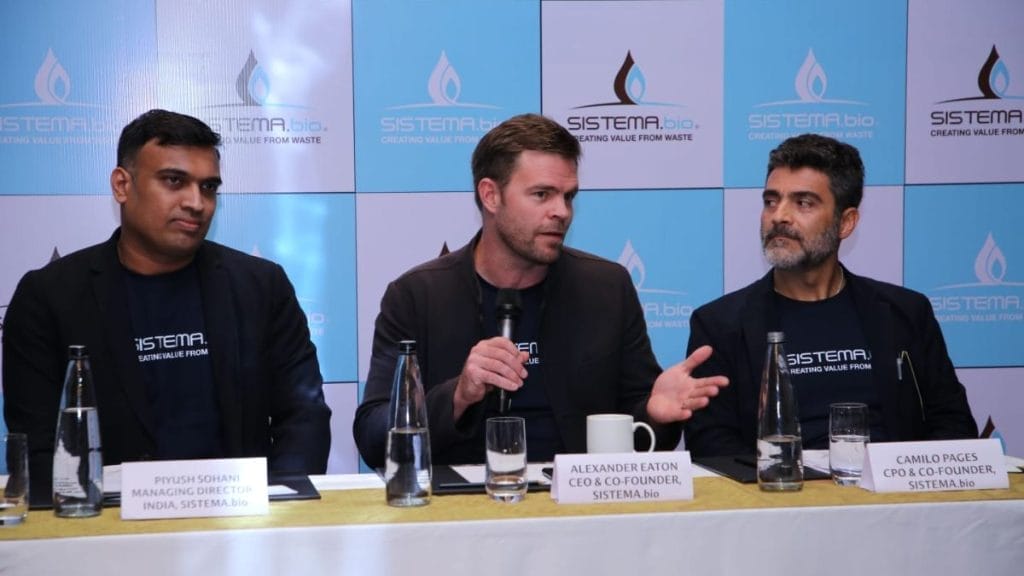New Delhi: Sistema.bio, a social enterprise based in Mexico and specializing in advanced biogas technology, recently unveiled the world’s largest manufacturing facility for biogas plants in Chakan, Pune. Founded in 2010 by Alex Eaton and Camilo Pages, Sistema.bio has its headquarters in Mexico City.
The newly established facility in India has an annual production capacity of 100,000 prefabricated biogas plants. Alex Eaton, CEO and co-founder of Sistema, stated that their bio-digesters are easier to install, have a longer lifespan, and are approximately 20% cheaper than traditional biogas plants constructed through civil engineering methods. He emphasized that existing technologies were primarily designed for industrial agriculture and did not adequately cater to the needs of small-scale farmers.
Sistema.bio is among the three biogas companies approved by the Ministry of New and Renewable Energy (MNRE) to participate in the National Bioenergy program, which has received an allocation of 100 crores. Previously, subsidies were limited to government programs, but private companies are now allowed to participate in biogas initiatives, with similar subsidies being offered for installing biogas plants based on new technologies.
India currently holds the largest market for biogas plants globally, with approximately five million plants installed. However, Eaton revealed that 50% of these plants are non-operational, and many installations aim to replace these outdated systems.
Sistema targets both small-scale farmers and large dairy and food companies. Piyush Sohani, the country director of Sistema, stated that the company plans to install 40,000 biogas units in India during FY23, with the goal of doubling the installations next year. Small-scale farmers receive a subsidy of around 15,000, which is directly deposited into their accounts upon installing biogas plants.
The biogas generated by Sistema’s plants powers a two-burner cooking stove and produces fertilizers that can replace 70-80% of chemical fertilizers. In the case of large installations by private dairies and cooperatives, the gas is utilized for electricity generation.
The size of the biogas plant can accommodate farmers with two to three cows, as well as dairy cooperatives with up to 175 cows. Eaton noted that 95% of farmers own fewer than 10 cows.
The Tata Trusts played a crucial role in bringing Sistema to India and continue to collaborate with the company. Sistema has already installed 50,000 units across 21 states, collaborating with organizations such as the National Dairy Development Board, Amul, Sumul, Nestle, Lactalis, the CSR projects of Infosys Foundation, and the Shell Foundation. So far, Sistema has raised two series of funding totaling $27 million and plans to secure $100 million in the next few years.
With an investment of 15 crores in the Indian plant, Sistema has the potential to double its capacity through automation. Besides catering to the Indian market, this manufacturing facility aims to export biogas plants to the Asia-Pacific region and Africa. Currently, exports contribute approximately 20% to Sistema’s overall sales.
The Sistema.bio biogas plant utilizes industrial-grade LLDPE (Linear Low-Density Polyethylene) geomembrane material, which has a lifespan of over 15 years and can be easily transported to remote areas and assembled within a day.





